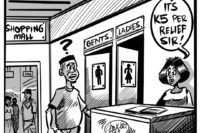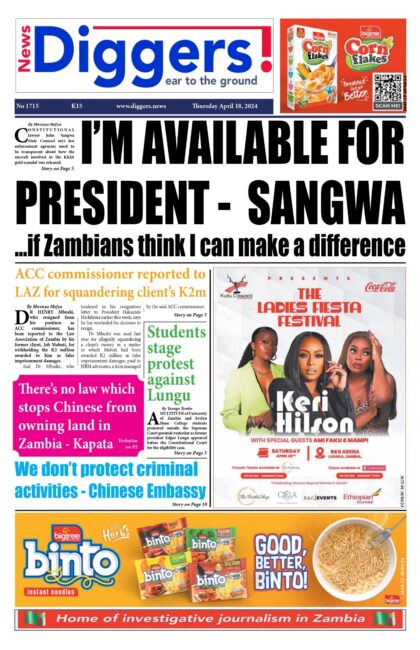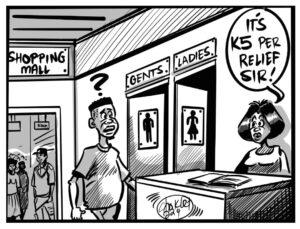When the Patriotic Front came into power they created a government investment portfolio in the name of Industrial Development Corporation (IDC). This brilliant entity was intended to serve as an investment holding company, under which parastatal institutions would operate. The IDC was to drive industrialisation and thereby reduce the unemployment rate.
After careful analyses, PF technocrats figured that on its own, Mulungushi textiles was viewed as a risk to investors; while bringing all the State-owned enterprises under one roof would create an attractive balance sheet. They wanted to leverage parastatal assets through IDC and raise billions of Kwacha, which would then be pumped out as industrial development bonds to recapitalise these government-dependent institutions.
But what has happened to this enterprising plan today is heartbreaking. Three weeks ago, Felix Mutati was complaining that only five out of 38 parastatal companies were paying dividends to government, but the Finance Minister is occupying a front row seat witnessing the criminality that is going on at the Industrial Development Corporation.
To start with, the original articles of association for the IDC did not provide for the sitting Head of State to be chairman of the corporation. We recall vividly that when former finance minister Alexander Chikwanda pushed Michael Sata into this responsibility, the late president refused. However, during the period that Sata was too ill to function, some ‘magic’ was performed to change the articles and allot the President powers to control the IDC. To his death, Sata never chaired the IDC board.
Under Sata, the President was supposed to be the chairperson of a Council of Ministers, which Council was supposed to include ministers who have companies that were operating under, or transferred to the IDC. This Council of Ministers was simply supposed to generate policy for the IDC board. We do understand that the IDC board was supposed to be chaired by the Secretary to the Cabinet and it was supposed to include; the Bank of Zambia governor, the Secretary to the Treasury, the Attorney General, Zambia Institute of Chartered Accountants, National Council for Construction, ZNFU, etc.
But the IDC which is chaired by President Edgar Lungu has its eyes and interests elsewhere. It is not focusing on resuscitating parastatals. That is why you will not hear them talk about Times of Zambia where workers have not been paid for the past seven months. They went and fooled the people of Kabwe that they were reopening Mulungushi Textile, but today everyone can see through the lies of the President.
President Lungu’s IDC has abandoned its own children at the Nitrogen Chemicals of Zambia and all these struggling institutions. Instead, it has gone out of its way to rescue a loss-making private company called Intermarket Bank. Why? Why has the IDC rushed to invest in a private company leaving Mulungushi Textiles, Nitrogen Chemicals, Times of Zambia and Zambia Daily Mail which is struggling to sustain its workforce? What was the motivation behind this move? How can Mutati complain that Times of Zambia is not paying dividends when his IDC is channeling money meant for recapitalisation, towards bailing out private companies?
Zambians need an explanation on why government would take public money, taxes which we pay and go to bail out a private sector company? Can Mutati tell the nation that no member of the IDC board was interested in this transactions? Can the Minister of Finance explain what role Mr Lawrence Sikutwa played in this transaction? Zambians want to know if there was any conflict of interest in this case because it defies all business logic for government to refuse to pay pensioners, but instead take their money to invest in a ‘bankrupt’ bank.
We know for a fact that it’s against IDC investment guidelines for the Minister of Finance to go and invest in a company where a member of its board or its management has an interest. This is where President Lungu’s problem comes in. He accepted to chair the IDC board and therefore, he cannot run away from the illegalities being committed by this entity. A time will come when President Lungu’s immunity may have to be lifted so that he can answer for everything that Mutati and his business allies are doing with government money under the IDC.
NAPSA and Workers Compensation Fund sit under the Ministry of Labour, not just finance alone; and therefore the approval of NAPSA converting its debt in Intermarket bank into equity needed cabinet approval because that money is workers’ money. Can Mutati tell the nation the day when Cabinet sat to approve this decision and what submission the Minister of Labour made towards this move?
The Zambian workers would like to know what was so special about Intermarket Bank. Because what has happened now is that all the toxic assets and bulk debt will remain with the IDC. Did President Lungu, sitting as IDC board chairman approve that private sector’s toxic assets should be handed over as the people’s assets? This transaction smells corruption.
It’s sad that our members of parliament sometimes behave like kindergarten children when Mutati is sweet-talking them, otherwise they should have demanded to know the new shareholding structure for the so-called Zambia Industrial Commercial Bank. Our MPs should have demanded to know how much Workers Compensation brought in, how much IDC brought in, how much Madison, or any other private investor, brought in. All those figures should have been broken down right there in Parliament.
Meanwhile, this is not the only scandal brewing at IDC which President Lungu should hope Zambians don’t remember. According to the investment guidelines, IDC cannot invest more than 25 percent in a single entity. And you can’t invest in a company that is linked to members of the board or members of management. But under President Lungu, the IDC has gone ahead to buy 90 per cent shares of Zampalm from Zambeef. Again we ask; can Mutati tell the nation that there is no member of the Zambeef board who is connected to the IDC?
Who approved US$16 million cash consideration for the purchase of 90 per cent shares in this palm oil company? What recommendation did ZAFFICO give the IDC on this matter?
We ask this because in an investment like this, when it turns out that it was a bad investment, President Lungu will be liable as Chair. These are grounds for which his immunity could be removed. That’s the saga of him being the Chair of the board. If he was Chair of the Council of Ministers, he was going to be in charge of a policy organ, not of the board. But the board supervises the operations of the company. So it’s presumed that you as the supervisor of the operations of the company must approve the operations and investment transaction. If President Lungu does not examine the activities at the IDC now, he must be prepared to answer for its financial mismanagement.













One Response
Rat in the pot “Koswe mumpoto” is exactly what it is.